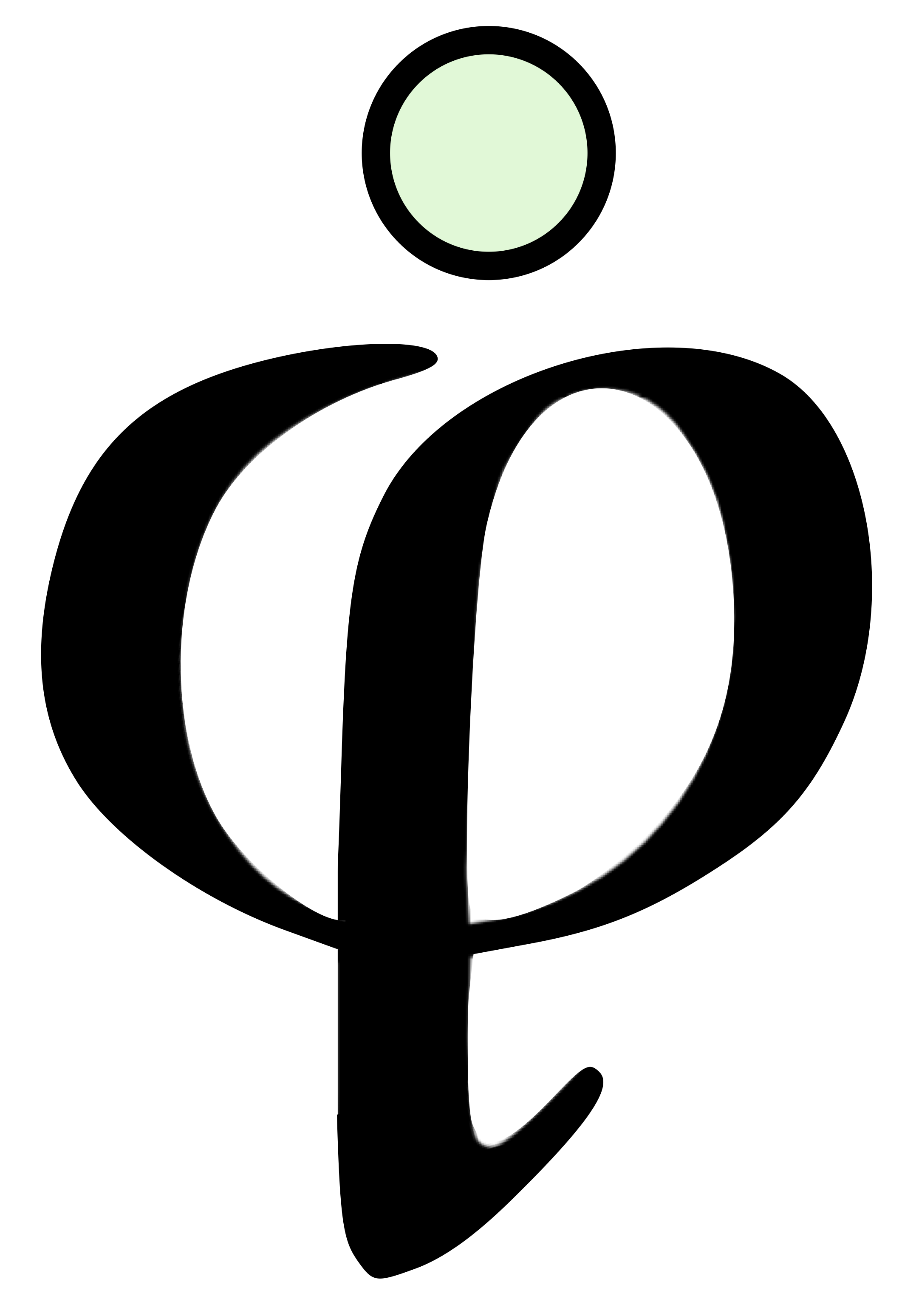
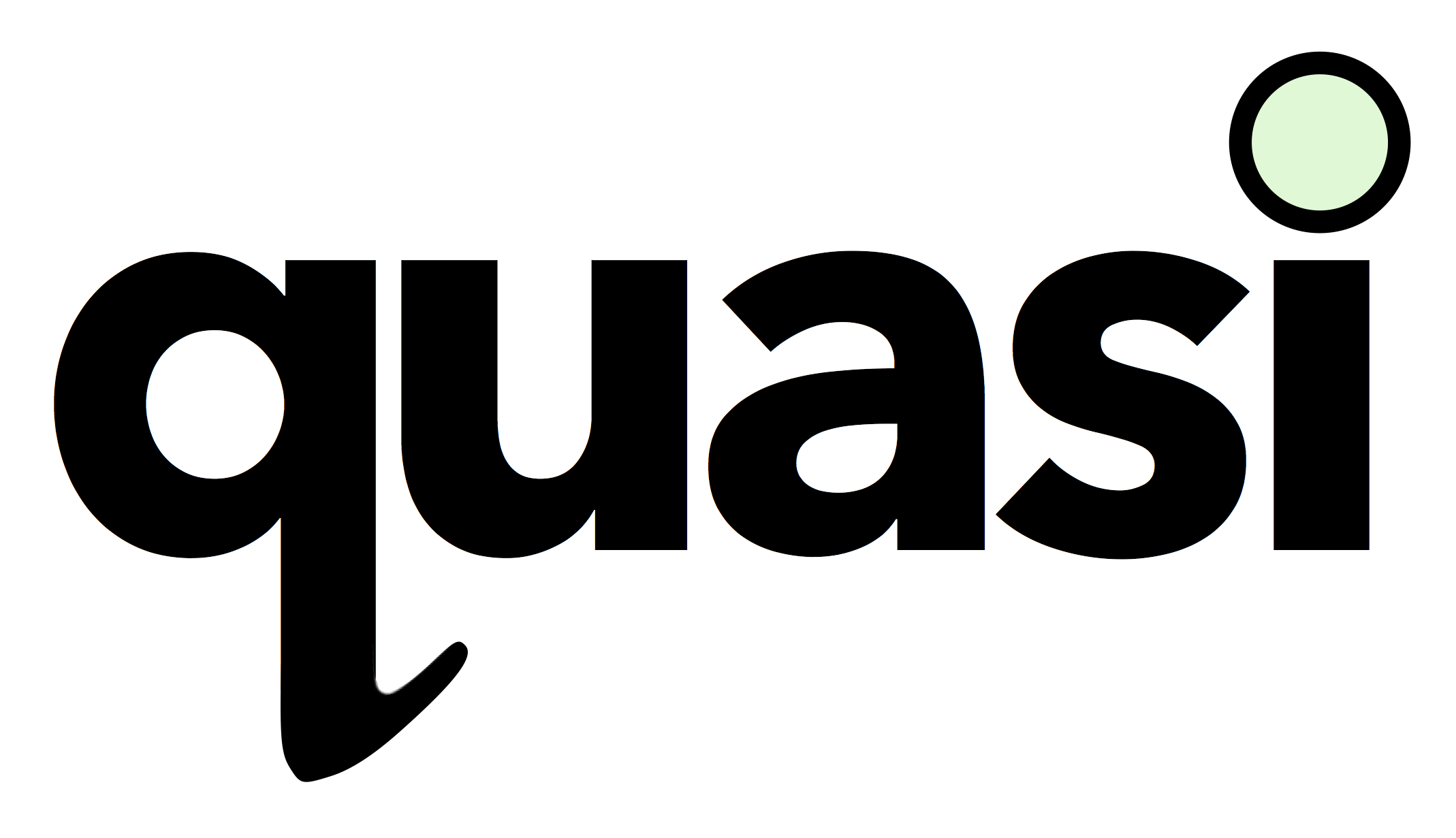
. . .
Quantum Architectures, Software, and Informatics
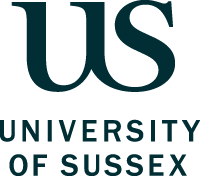

. . . Quantum Architectures, Software, and Informatics
The Quantum Architecture, Software, and Informatics (or quasi) group is an informal division of the Foundations of Software Systems group, in the Department of Informatics at the University of Sussex.
We investigate high-level architectures for scalable quantum computation, and develop software platforms to do practical quantum computation, backed by research into the theory of quantum information and quantum computation.
We are a part of the Sussex Centre for Quantum Technologies.
What resources are important in a quantum computation, and what techniques can we use to reduce the use of those resources?
What challenges are there when attempting to build a scalable quantum computing system, and how can we effectively address them?
How can we verify the correctness of a quantum computation, and how difficult is it to simulate quantum computations on more conventional computers?
What are the appropriate mathematical tools to investigate questions in quantum computation, and how can we develop them further?
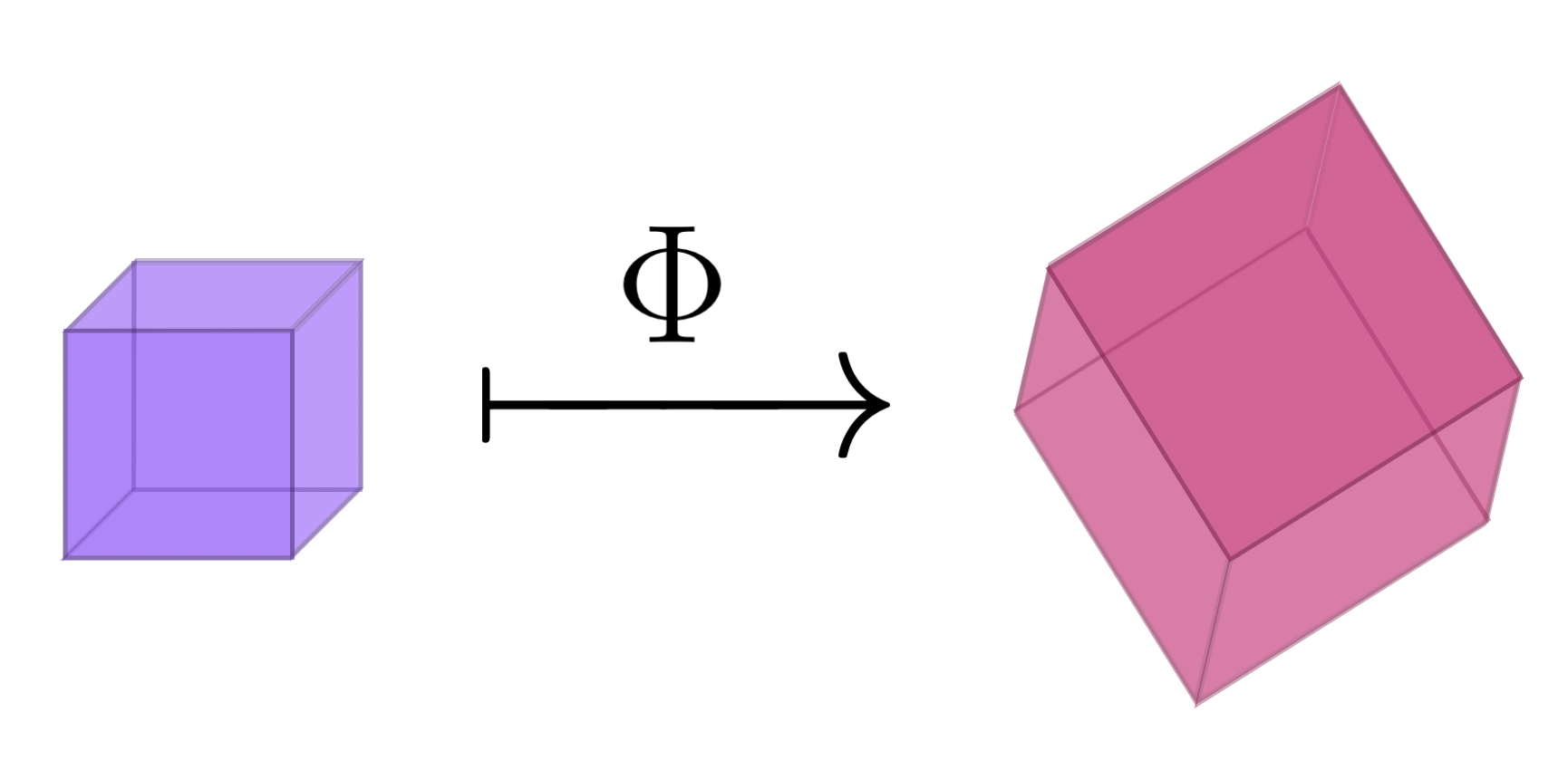
Quantum channels can at best preserve information stored in a system, but in practice will add noise to the system by making possible input states more difficult to reliably distinguish. One of the ways that we can quantify this is in how much more sensitive a hypothetical device would have to be, to make distinctions between possible input states. The latter can be described in terms of how much a quantum channel affects the spectral diameter of a quantum observable in the Heisenburg picture. Together with Christopher Ramsey, we describe bounds on the relationship between the induced spectral diameter of a mapping on observables, and norms on those mappings. This is progress towards a rigorous foundation for experimentally accessible tests of the reliability of a quantum memory.

Developing streamlined techniques to analyse quantum operations on qudits can sometimes be challenging, as issues such as whether the dimension is prime can come into play. With Richard East, we developed techniques to extend the the ZX calculus and the ZH calculus to qudits of any dimension, effectively extending and simplifying the results of [arXiv:2006.02557], and demonstrating an approach to define graphical notation systems which can achieve both simplicity and versatility.
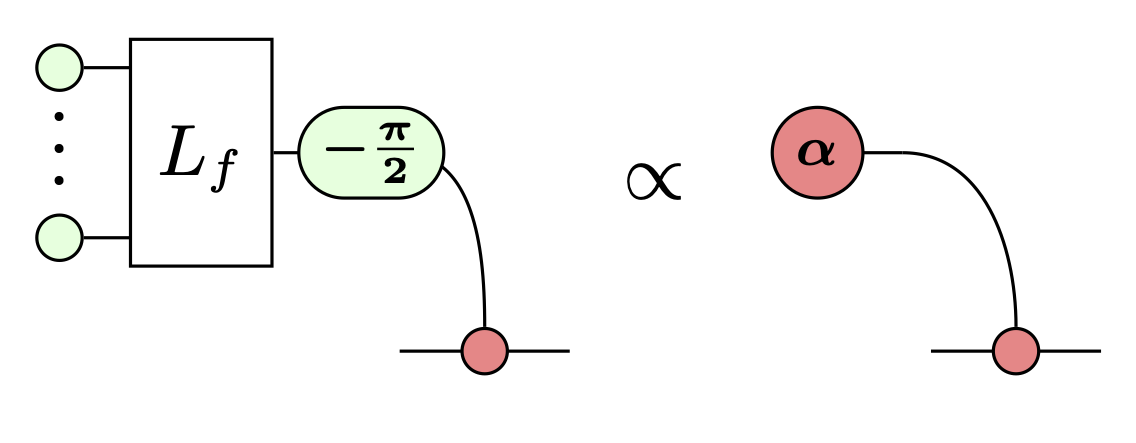
The ZX calculus is a useful notation for analysing and transforming tensor networks, in a way that can be used to simplify quantum circuits. However, it is a sufficiently powerful tool that it can represent quantum circuits in non-obvious ways. With Aleks Kissinger and John van de Wetering, we show that the problem of extracting a quantum circuit from a ZX-diagram is #P-hard, which means in particular that it is at least as hard as solving NP-complete problems such as 3-SAT or the Travelling Salesman Problem.
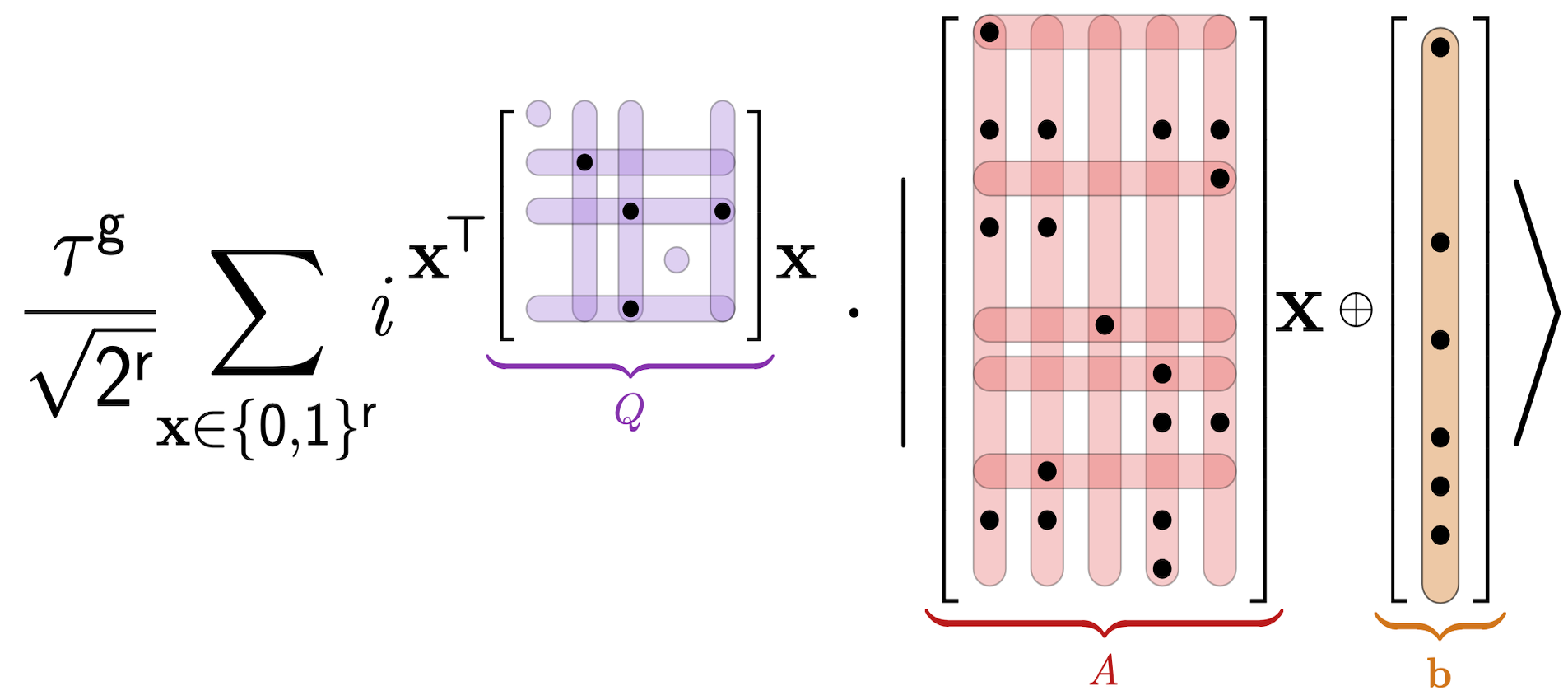
Some quantum operations can be efficiently simulated on particular quantum states, if described in a particular way. One example are stabiliser states, which can be characterised as joint +1-eigenvectors of Pauli operators, but which can also be characterised in other ways. With Steven Herbert, we demonstrated how to use quadratic form expansions as a way to efficiently simulate the probability distributions generated by 'stabiliser circuits', which in particular ought to be useful for the simulation of the effect of 'Pauli noise' on error corrected memories.
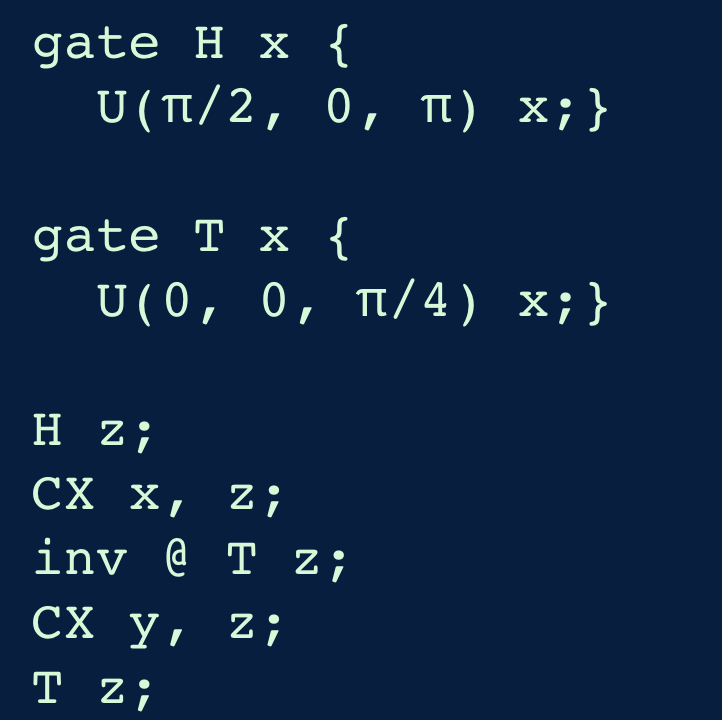
How can we practically and effectively describe quantum computations? We worked together with the QISKit team to develop OpenQASM 2 circuit description language. OpenQASM 3 will allow the programmer to work more closely with quantum hardware platforms, but also will provide ways for programmers to write more versatile code to describe more general quantum computations.
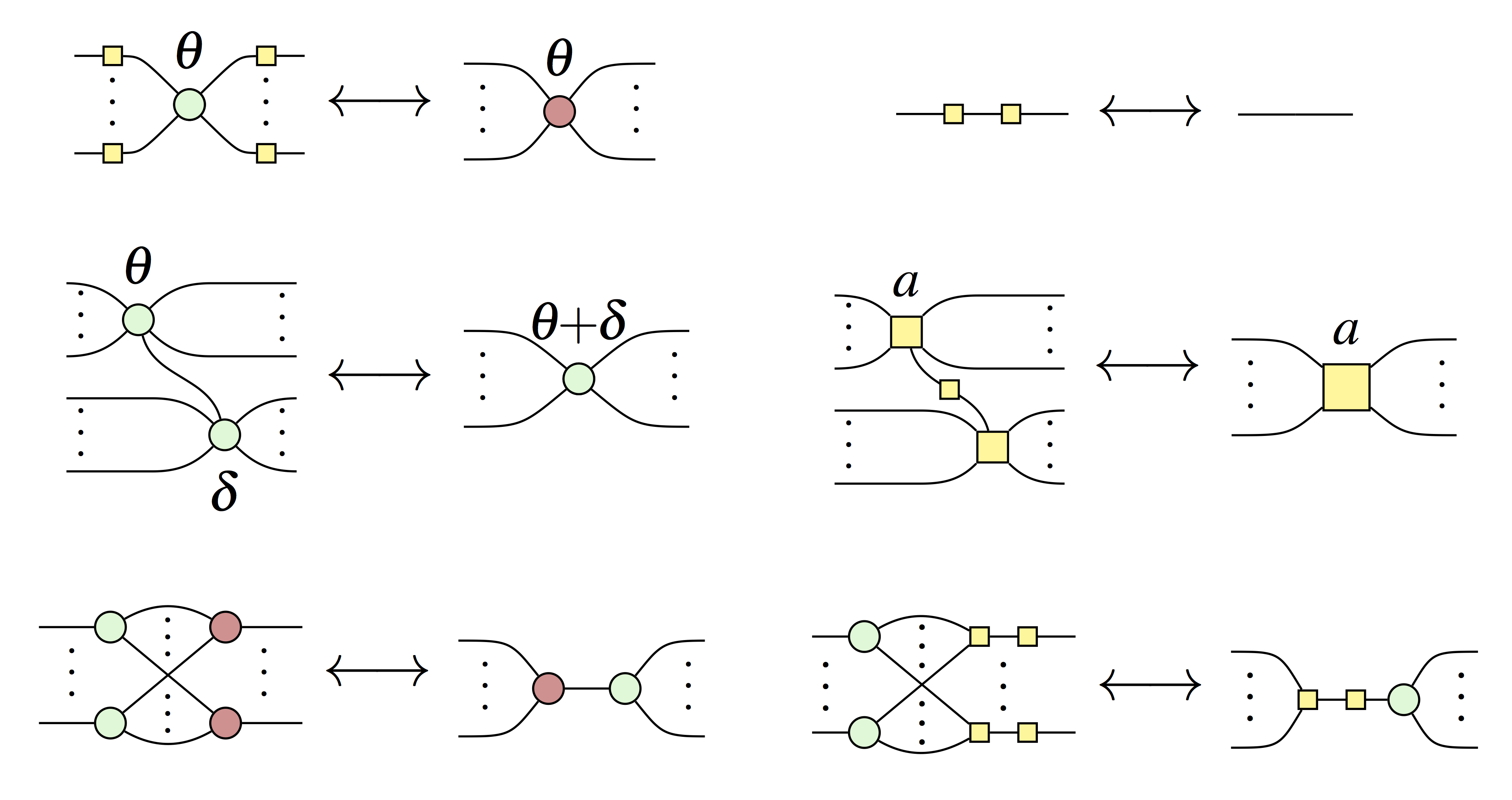
Diagrammatic calculi are systems to use diagrams as formal notation for rigorous calculations. The ZX calculus and the ZH calculus are two such 'calculi', which are useful to represent quantum circuits as tensor networks, and to 'rewrite' them to perform simplications and prove equalities. However, the pre-existing versions of these calculi involve rules which require extra bookkeeping to track scalar factors, particularly if the two systems of diagrams are to be used together. We devised an alternative presentation of these rewrite systems, making it easier to use them either together or individually.

There are certain 'simple' operations which a quantum computer must be able to perform to have any computational advantage over classical computers. These operations may be costly to realise in a fault-tolerant manner. To reduce the cost of a computation, it is useful to try to find techniques to reduce the number of such costly operations. Together with Quanlong Wang and Xiaoning Bian, we described and implemented techniques which set new records for the reduction of the number of 'T gates' in a quantum computation. To do so, we used the ZX calculus to describe this problem in terms of a simple optimisation problem, and set out a framework of approaches to find approximate solutions to this problem based on circuit identities.

In some quantum architectures, the physical systems which used to store qubits may not be mobile. This represents an obstacle to realising two-qubit operations on pairs of qubits which are not immediately next to one another. Entanglement swapping is one technique to allow 'remote' qubits to interact, using a chain of qubits as intermediaries. However, as scalable quantum computation will rely on being able to perform operations in parallel on different qubits, problems may arise if we would like to use qubits on more than one overlapping chain. With Steven Herbert, we demonstrate how the theory of linear network coding may be used to help realise simultaneous entanglement swapping between multiple qubit pairs.
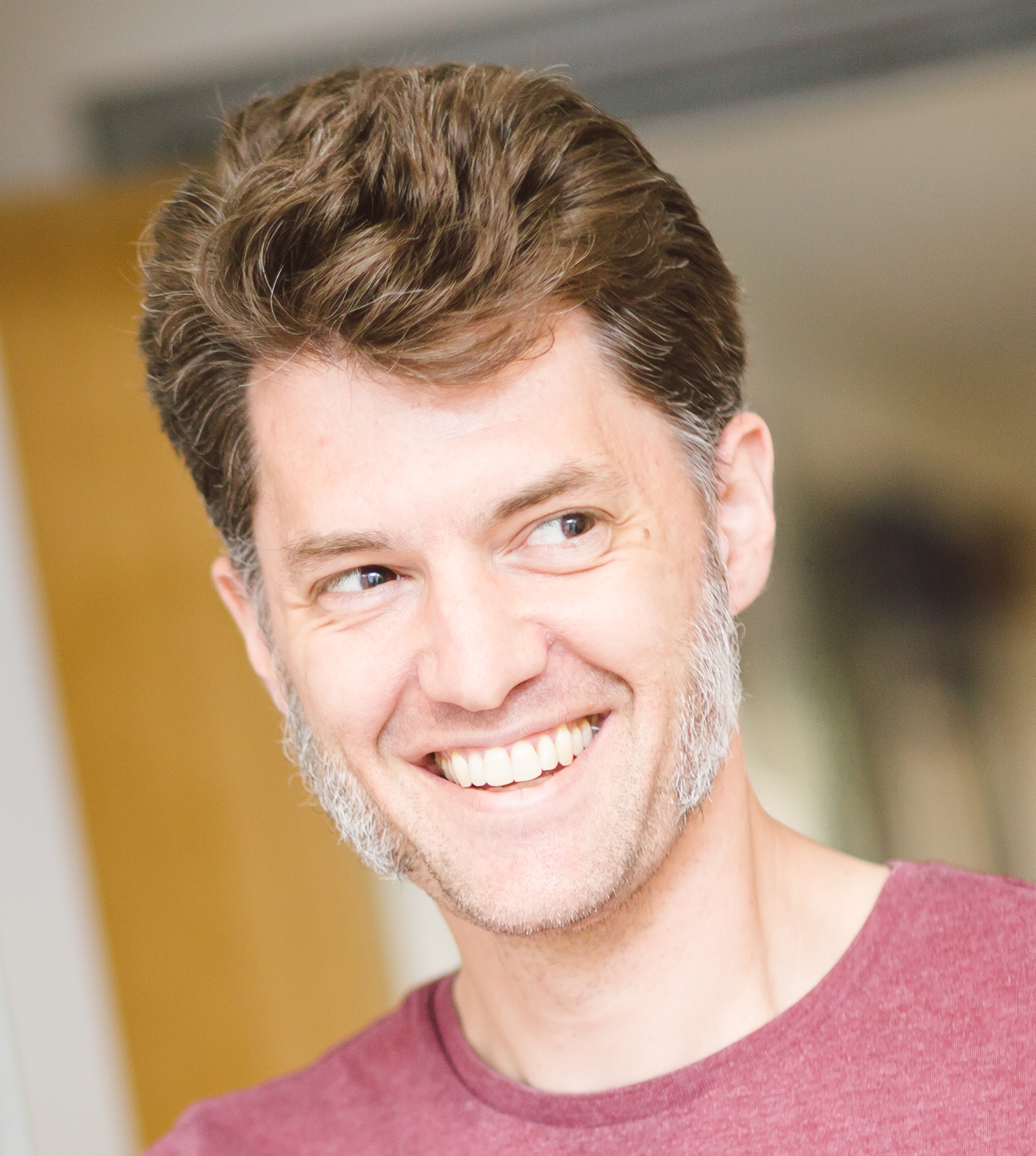
Lecturer in Theoretical Computer Science
Research Interests: algebra, operator theory, algorithms, complexity, error correction, software
At the moment, quasi is a new group, and many of the uses of the words 'we' and 'our' here should be understood to be the 'royal we'.